Movie Review – Kimi
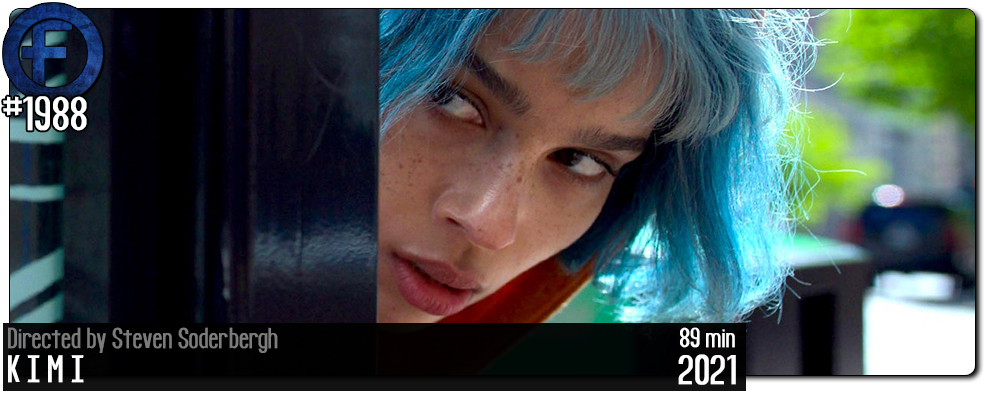
Principal Cast : Zoe Kravitz, Byron Powers, Jaime Camil, Emily Kuroda, India de Beaufort, Jacob Vargas, Derek DelGaudio, Erika Christensen, Devin Ratray, Andy Daly, Robin Givens, Rita Wilson, Charles Halford.
Synopsis: An agoraphobic Seattle tech worker uncovers evidence of a crime.
********
At first blush, Steven Soderbergh’s Kimi – currently streaming exclusively on HBO Max – is a tightly wound, creepy and claustrophobic techno-thriller. It taps into tropes of isolation, technological pervasiveness and paranoia quite well, led by the solid central performance of Zoe Kravitz, playing the blue-haired tech worker thrust into a cat-and-mouse game of murder and corruption. Kimi doesn’t even clock in at the magical 90 minute runtime, which makes its brevity and singular plot hook work so beautifully; it gets in, does its thing, and never outstays its welcome. However, despite a strong start and breathless pace, Kimi somehow torpedoes its better elements with a preposterously silly final act, one of those “suddenly, aliens!” kind of endings that ties up loose ends at the end of a well positioned nail gun.
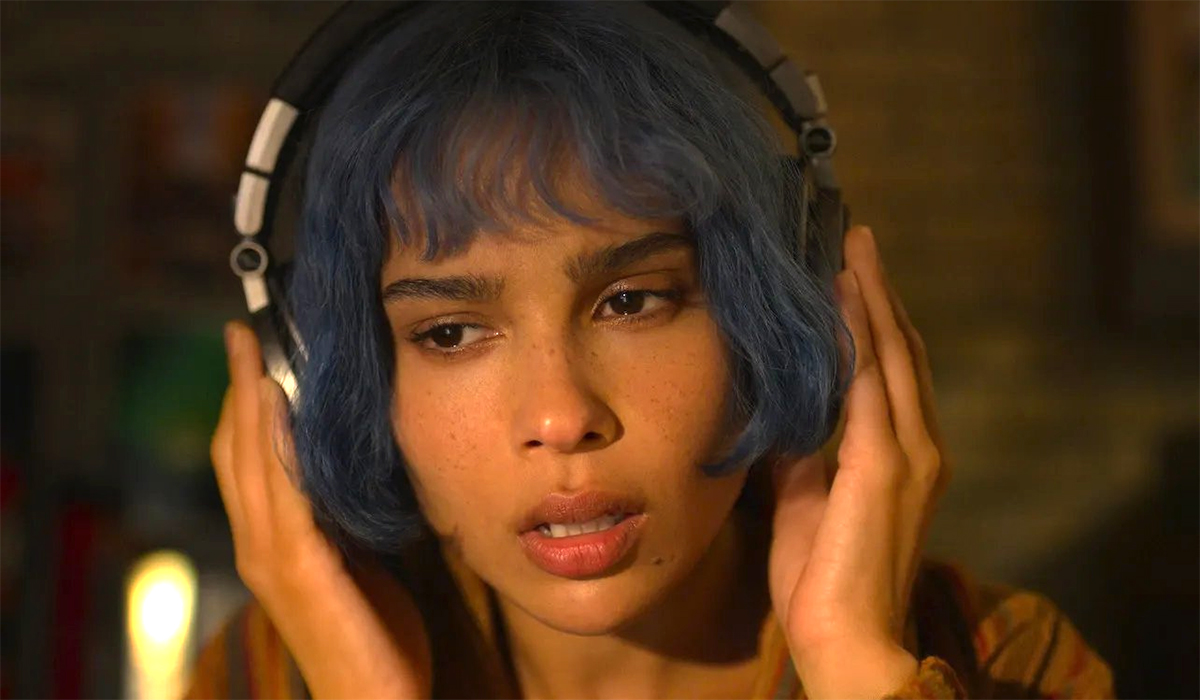
Kravitz plays Angela Childs, an agoraphobic tech worker who unwittingly overhears evidence of a violent crime whilst analysing data streams from the company’s popular in-home listening device – similar to Google Nest or Alexa. When she tries to take this evidence to her superiors, she is met with a suspicions aversion to instigating law enforcement involvement, and promptly pursued from head office by sinister gangster forces. Desperately reaching out to the few friends she has, including her one-time lover Terry (Byron Bowers), Angela must make her way back home to relative safety while assassins lurk on every street corner.
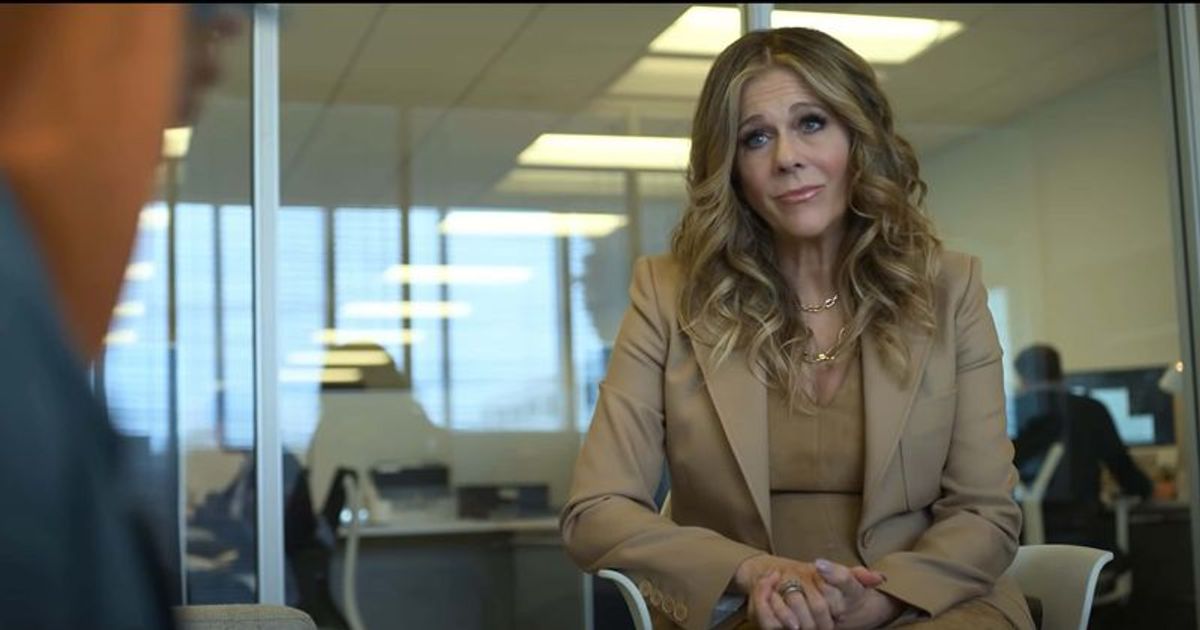
Kimi is a fairly prescient film for today’s pandemic era shut-in status. The central character’s fear of going outside, agoraphobia, is not only a canny storytelling device in Kimi but also a legitimate real-world mental health problem for many, many people. Soderbergh utilises our current lockdown at-home sense of isolation well within the context of the film, appropriating the voyeuristic nature of Angela’s window frontage to peer across the street into neighbouring apartments to develop an isolationist subtext regarding cuboid, shuttered lives. Written by David Koepp (Jurassic Park, Spider-Man, Stir Of Echoes, Jack Ryan: Shadow Recruit), a longtime industry journeyman whose hits and missed proliferate among Hollywood legend, Kimi is a small-scale story handled with dexterity and alacrity by his director and imbued with sweaty, fingernail-shredding commitment by actress Zoe Kravitz. Kravitz’ work inhabiting the role is the film’s key strength, maximising the insular solo effort with chattering, frantic fear once the character ventures outside.
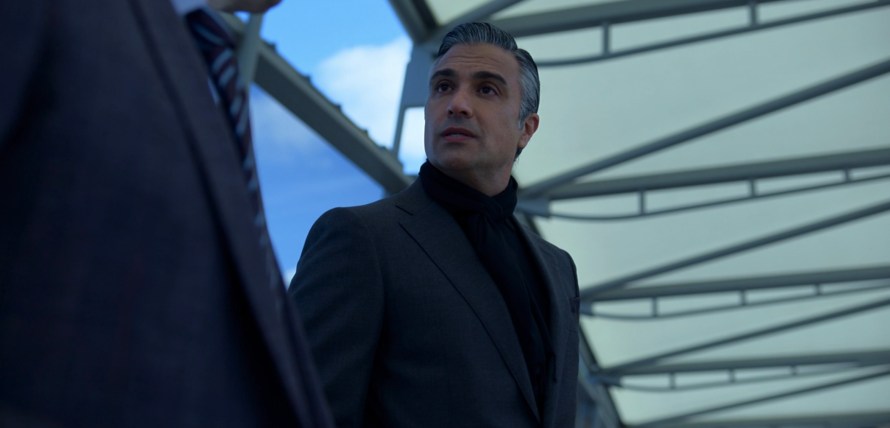
Soderbergh builds the tension of Angela’s predicament, already fraught with her panic attacks, with the insertion of dark figures pursuing her, a sidebar storyline involving a senior partner at the company and trying to cover up a murder. He captures the crisp loneliness of Angela’s life and then throws her into a terrifying journey outside, far from the security of her apartment sanctuary, and as an exercise in rising paranoia it’s a film that satisfies completely. Even though it resorts to tropes of technobabble in the second act, Kimi remains steadfast in elevating a simple plot device to maximise viewer discomfort. Hell, even a frustratingly obscure cameo by Rita Wilson, as Angela’s boss, reeks of espionage and corporate malfeasance to the point your brow becomes sweaty just thinking about it. Supporting roles to Byron Bowers, an across-the-street neighbour who harbours feelings towards Angela, Robin Givens as Angela’s facetiming mother, and Emily Kuroda as Angela’s psychotherapist, offer character development to Angela’s state of mind and crippling social anxiety, while a creepy Devin Ratray (whose character name will absolutely make your jaw drop to the floor, if you know the big film the actor is most renowned for) offers tangential menace.
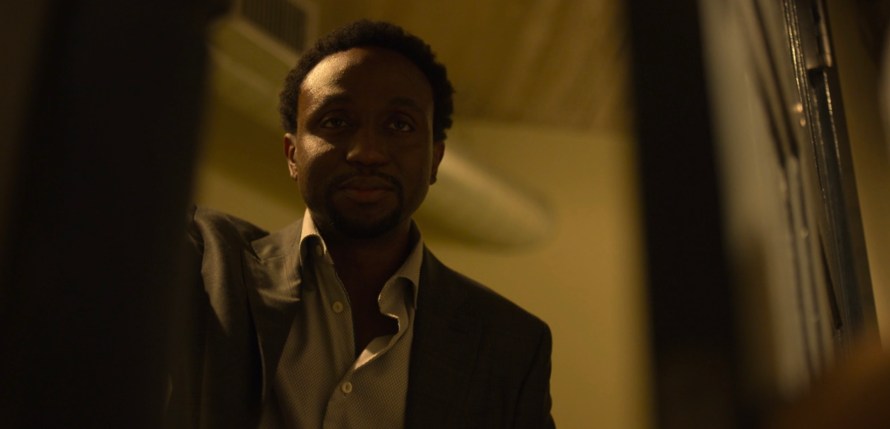
But it all boils down to how well the film’s climactic showdown plays out. Sadly, Kimi’s construction-influenced final battle between Angela and a trio of murderous thugs sent to track down some delinquent data, goes from inarticulate terror to forehead-smacking inanity in a matter of moments. Without giving away spoilers, we’re asked to believe that a woman so small of frame and mentally fragile could suddenly take down three lumbering, gun-toting assassins? Furthermore, we’re asked to believe these three assassins would rather spend five minutes discussing their plans with their intended victim allowing her time to manufacture an escape? I groaned audibly the moment Angela disappeared up into the roofspace between her apartment and the one above, only to return momentarily with a hydraulic nail gun. Seriously, she’s gone from gibbering trainwreck to Liam Neeson in Taken in about two minutes? Nah, bro, that don’t fly.
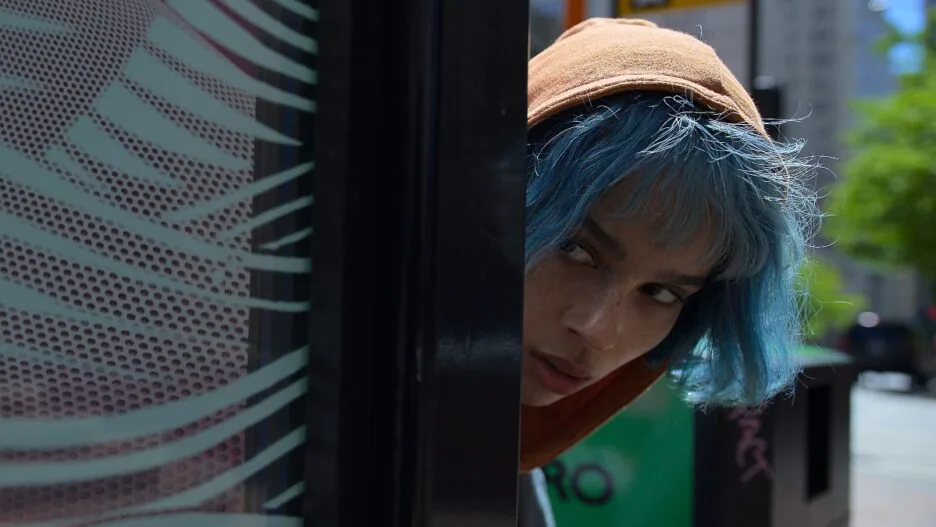
If you disregard the film’s final ten minutes, Kimi is a sprightly, involving and effective thriller showcasing Kravitz’ skill as an actor. If you include Kimi’s letdown finale, the film’s paranoiac themes and atmospheric isolationism kinda fall flat with out-of-the-box heroics that aren’t approached with any foreshadowing. Sadly, it mitigates a lot of Soderbergh’s great work setting up the story and characters. If you can overlook this unsatisfying climax, I think you’ll still have a good time with Kimi so long as you approach it with a degree of switch-off-your-brain feverishness.
